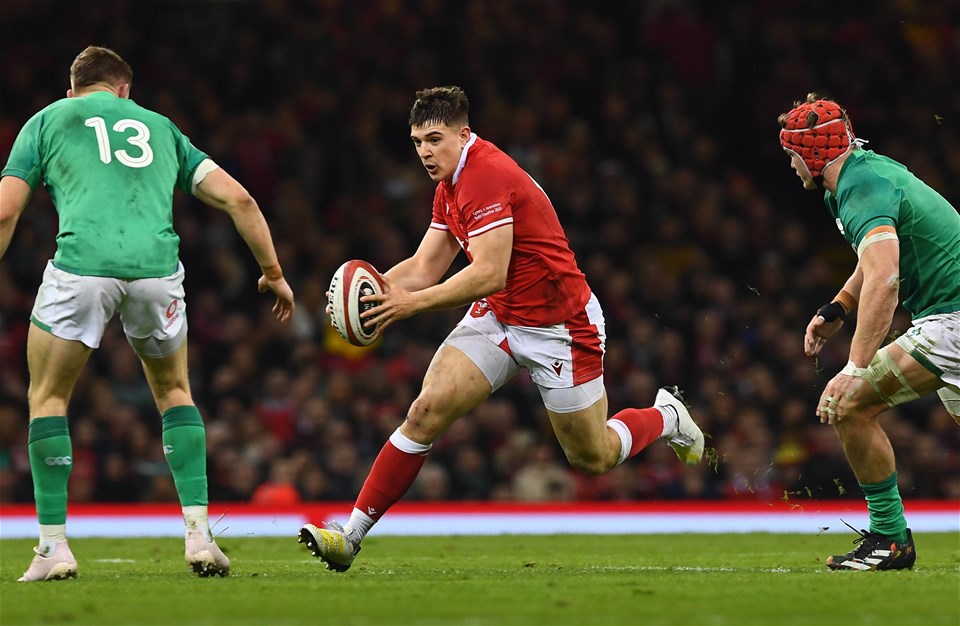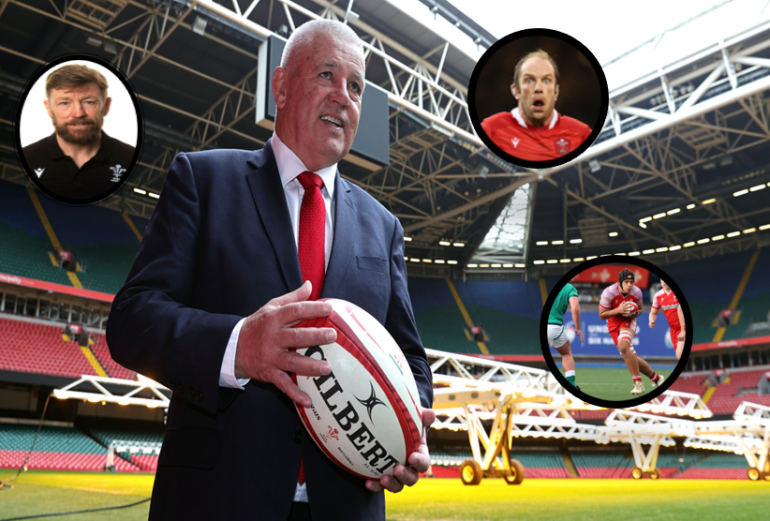The changing of the guard, and a disappointing performance in defence has given Warren Gatland plenty to think about
IT speaks volumes that many Wales supporters were relatively pleased with the 41-28 defeat to France in Paris that ended their underwhelming Six Nations campaign.
The pre-match predictions were that Warren Gatland’s men would be on the receiving end of a drubbing just like England had received the week before.
No-one was expecting Wales to win the title this year, but the general view was that they would have picked up more victories than the one against Italy in Rome
The campaign was marred by off-field contracts drama which saw strike action threaten the home fixture against England. Only an 11th-hour agreement between players and the WRU saw the game go ahead, much to the relief of the management and the fans.
This year felt like the end of an era for Wales, with Warren Gatland saying that up to eight players could be playing in their last Six Nations. So what’s next for this group of players and what did we learn from Wales’ 2023 campaign?
Youngsters have proved they’re capable of replacing old guard
Dafydd Jenkins, Rhys Davies, Christ Tshiunza, Tommy Reffell, Joe Hawkins and Mason Grady all featured in their first Six Nations and showed exactly what they’re capable of. The 20-year-old Hawkins started four games and has arguably made the 12 jersey his own, while 20-year-old Jenkins featured in all five games, making two starts. This marks a meteoric rise for the pair who were playing for Wales U20s just last summer.

There has long been debate that there aren’t enough quality young players coming through in Wales, but these six show that there are youngsters who are good enough, they just need the chance to show it.
Leaky defence needs work
In Warren Gatland’s first spell as Wales coach the tactics were simple yet so effective. Defend well, keep things basic and grind out the victories. It may not always have been the easiest on the eye, but “Warrenball” led Wales to two World Cup semi-finals and three Grand Slams.
A lot of this was down to the defence coach at the time, Shaun Edwards, widely regarded as the best in the game, but who is now giving France the benefit of his experience.
Under new defence coach, Mike Forshaw, Wales conceded 19 tries – the most ever in a Six Nations campaign. To put it into context, Wales conceded just two tries in the 2008 Six Nations – Edwards’ and Gatland’s first campaign.
Forshaw came with a fierce reputation after impressing as Sale Sharks defence coach, so those stats won’t make pretty reading for him. There is an argument that Wales chopping and changing their team so regularly wouldn’t have helped him to build structures and he’s only been in the role since January, so perhaps we shouldn’t be overly surprised that Wales’ defence isn’t perfect yet.
However, if Wales are to compete with the world’s best come the World Cup in September, the defence needs to improve, and quickly.
Rhys Webb makes the No 9 jersey his own
Rhys Webb could have been forgiven for thinking his international career was over after repeatedly being overlooked for selection by previous head coach, Wayne Pivac. The 34-year-old has been in outstanding form for the Ospreys for the last two seasons and was finally rewarded with a call-up to the Six Nations squad again by Gatland.
When Webb started against Italy in Rome it was, incredibly, his first Six Nations start since March 2017. Injury, being ineligible due to playing club rugby in France and being out of favour means that Webb only has 40 Welsh caps despite making his debut in 2012.
Webb won player of the match in Rome after an outstanding display. He set up two tries, kicked well and was branded “excellent” by Gatland.
He backed it up a week later in Paris with a pass that took three French defenders out of the game allowing George North to score. The Wales No 9 jersey has long been up for grabs and Webb’s displays surely mean that he will be first choice going into the World Cup.
Wales squad balance needs re-addressing
Six months away from the World Cup Wales have a group of quality but raw young players and some experienced stalwarts at the end of their careers but not much in between. Wales lack players reaching the peak of their careers.
Successful squads are usually made up of players in their mid-to-late 20s, peaking in time for the World Cup. If the World Cup was next year, it’s quite likely that the likes of Alun Wyn Jones and Ken Owens wouldn’t have been selected for the Six Nations. Wales would have been nurturing newer players instead.
Planning for this World Cup should have started during the 2020 Six Nations with the older generation of players being phased out, Wales failed to do so and are now paying the price.
Expect the squad for the 2024 Six Nations to look very different.



